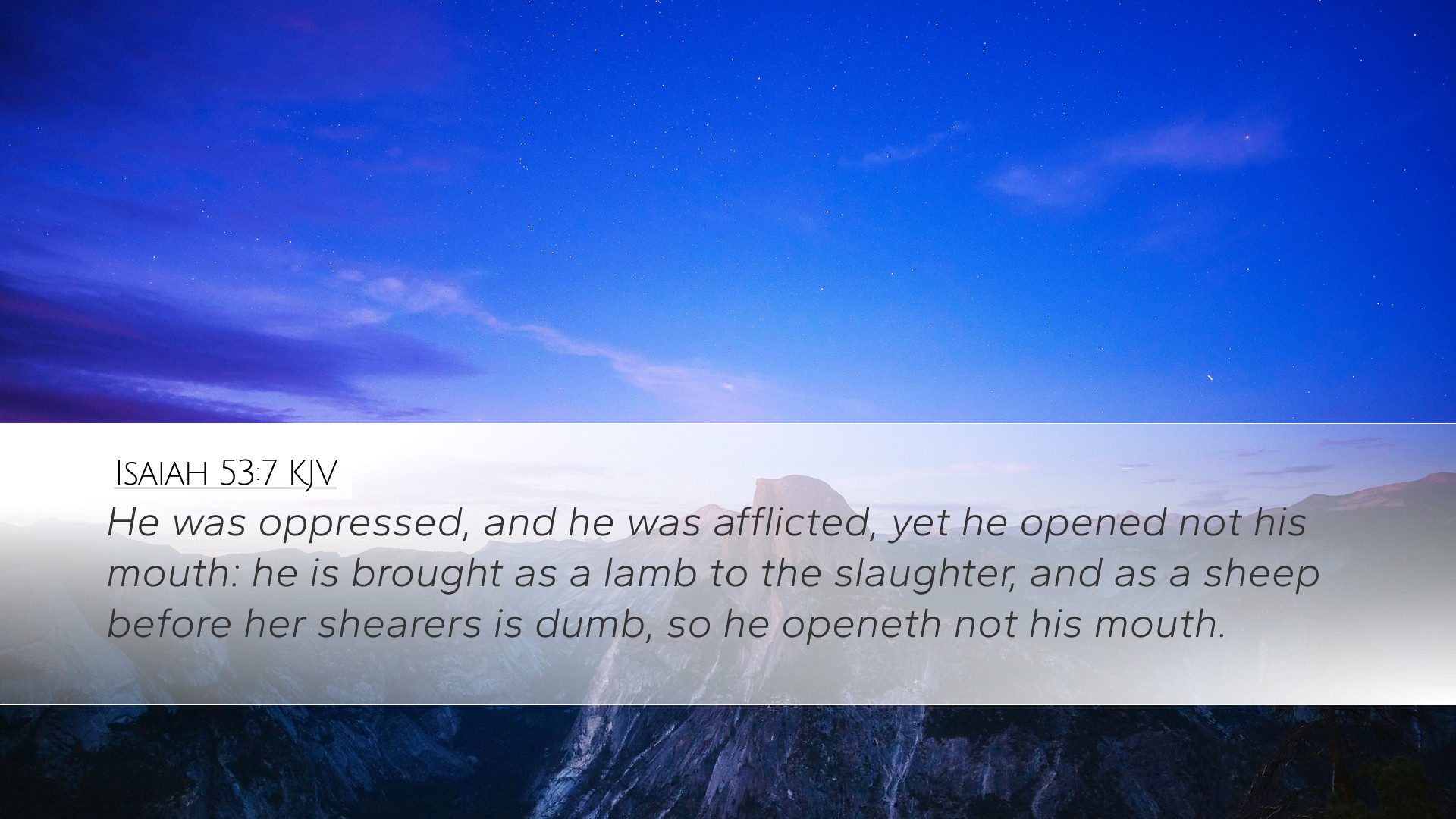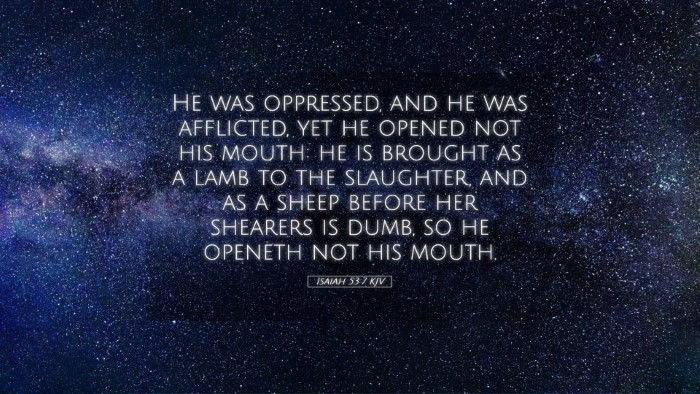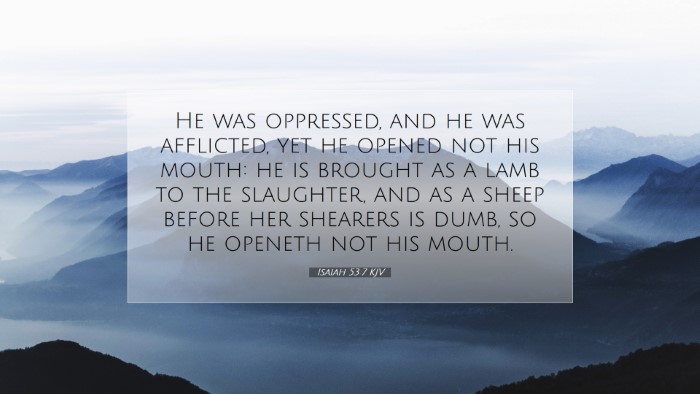Isaiah 53:7 - Commentary and Insights
Verse: "He was oppressed, and he was afflicted, yet he opened not his mouth: he is brought as a lamb to the slaughter, and as a sheep before her shearers is dumb, so he openeth not his mouth." (Isaiah 53:7, KJV)
Introduction
This verse from the book of Isaiah stands as a profound testament to the character and suffering of the Messiah. It serves as a cornerstone for understanding the nature of Christ's suffering and the redemptive purpose behind it. The prophetic imagery vividly depicts the silence and submission of the Messiah in the face of oppression and anguish.
Contextual Understanding
Isaiah 53 is often referred to as the "Suffering Servant" passage. The broader context of this chapter encompasses the themes of redemption, sacrifice, and the fulfillment of God's promise through suffering. This particular verse highlights the enigmatic journey of the servant who bears the iniquity of many.
Key Themes
- Oppression and Affliction: The terms "oppressed" and "afflicted" underscore the severity of the suffering endured. Matthew Henry remarks that the oppression was not merely physical but also spiritual.
- Silence in Suffering: The silence of the servant is emphasized; Adam Clarke notes that this reflects not a lack of power to speak but a profound strength in submission.
- Comparative Imagery: The metaphor of a lamb to the slaughter and a sheep before her shearers powerfully conveys the innocent nature of the Messiah's sacrifice. Albert Barnes highlights that these images evoke the meekness and humility of Christ.
Exegesis and Interpretation
Examining the grammar and structure of this verse allows for a deeper understanding of its implications. The Hebrew word translated as "oppressed" (דָּכָא - dakah) denotes a sense of being crushed or beaten down. This term is crucial as it sets the tone for the nature of Christ's suffering; His affliction was not incidental but deeply rooted in the human experience of sin and sorrow.
The phrase "he opened not his mouth" signifies a deliberate choice to refrain from defending Himself. Clarke interprets this as emblematic of the perfect obedience and submission of Christ to the Father's will. This silence is contrasted with the loud accusations and taunts of His oppressors, reflecting the divine dignity maintained in suffering.
Theological Implications
This passage raises significant theological questions about the nature of suffering, sacrifice, and the character of God. The readiness of the Messiah to endure unjust suffering speaks volumes about the divine plan for redemption. It is through this suffering that believers find both hope and assurance of God's ultimate victory over sin and death.
Suffering as a Pathway to Glory
- Redemptive Suffering: The affliction of the servant is not without purpose; it serves the ultimate goal of redemption. As Henry suggests, the silence before the slaughter is intimately connected to the gravity of the mission.
- Meekness and Strength: There is an inherent strength in the meekness displayed. Barnes points out that true power is often found in restraint and humility.
- Identification with Humanity: The suffering servant's experience allows Him to identify with human pain, providing comfort to the afflicted and a model for enduring hardship.
Practical Application for Believers
Understanding Isaiah 53:7 imparts vital lessons for believers. It invites a reflection on the nature of hardship faced in the Christian walk. The example of Christ encourages a posture of humility and trust in God's plan, even amid trials.
Lessons for Ministry
- Empathy in Suffering: Pastors and ministry leaders are called to exhibit empathy toward those who suffer, mirroring the compassionate silence of Christ.
- Encouragement in Silence: There are times when words fail. In moments of distress, just as the Messiah did not defend Himself, believers are encouraged to rely on God’s presence rather than their understanding.
- Hope in Affliction: The truth that suffering can be redemptive provides a foundation of hope for those in mourning or despair, reminding them that God’s purposes often unfold mysteriously.
Conclusion
Isaiah 53:7 encapsulates the essence of the Suffering Servant's mission and serves as a pivotal moment in the narrative of salvation history. The prophetic declaration speaks to the heart of the gospel—Jesus Christ, who, though oppressed and afflicted, opens not His mouth, draws us into the depths of His grace. As we reflect on this verse, let us hold fast to the truth that in suffering, there is hope, purpose, and divine affirmation of God's love for humanity.


